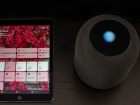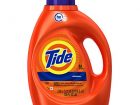I found Peter Burrows op-ed piece on Apple Computer in Business Week a bit tainted, if not unfair. While reading it I had flashbacks to the mid-90's when Apple was everybody's favorite computer company to bash, pity and hate. Do a word search of the hundreds of articles describing Apple Computer's business issues at this time. The words beleaguered, on its last legs, troubled, unstable, shuddering, failing and a bunch more. You see, people, especially business and technology journalists love to kick the company that's on the ground and hurting. Certainly, Apple may have asked for it. It's very effective at PR, But unlike the adage that some prescribe to that “even bad PR is good PR”, Apple has taken its share of digs from the media, business and Wall Street. This translates into small talk sound bytes so that average consumer who “knows just enough to be dangerous” can join the charade and beat the company further.
Most recently the pundits are pondering whether Microsoft will renew its five-year old agreement to continue development of its ubiquitous Office application for the Macintosh.
These days Apple gets its digs for two things. One, market share. And Burrows and Business week love throwing numbers around like the peanut peddler at Pac Bell Park. Second is processor speed and how Apple is seriously losing the speed war with Intel. The processor speed issue has been beaten, bruised and bastardized plenty in the media and the blogs. But market share? The mere talk makes me sick.
[…] Apple continues to be the trend-setter for the PC industry, which has been far more focused on cost-cutting than on innovation. In recent years, Apple has drawn crowds of copycats with its AirPort wireless networking gear and its flat-screen iMacs […] Apple's share of the U.S. consumer market jumped from 2.2% in 2001 to 3.9% in the first three quarters of 2002. In part, that's because of the rollout of 51 Apple retail stores and the six-month-old “Switcher” ad campaign aimed at persuading PC users to buy Macs. Roughly half of the people who bought Macs in Apple stores last quarter had never owned one before […]
Sure. Market share remains important to provide a much needed customer base to Apple's growing list of developers. But when it comes to the media, the comparison is made between Microsoft's 90+% of the market. But nobody ever compares the market to say, the automobile industry. What's BMW's market share? How about Mercedes? Well, if you live in Orange County and certainly other affluent burbs you might be swayed to suggest a higher number.
But fact is, many automobile companies do extremely well by garnishing a market share below 5%.
| Maker | 2002 Volume | % Change | Marketshare |
| GM | 4,782,211 | -0.9 | 28.4 |
| Ford | 3,403,729 | -9.6 | 20.2 |
| Chrysler | 2,205,446 | -3 | 13.1 |
| Toyota | 1,756,127 | 0.9 | 10.4 |
| Honda | 1,247,834 | 3.3 | 7.4 |
| Nissan | 739,525 | 5.1 | 4.4 |
| Hyundai | 375,119 | 8.3 | 2.2 |
| Mitsubishi | 345,111 | 7 | 2.1 |
| Volkswagen | 338,125 | -4.9 | 2 |
| Mazda | 258,213 | -4.2 | 1.5 |
| BMW | 256,622 | 20.4 | 1.5 |
| Kia | 237,345 | 6.1 | 1.4 |
| Mercedes | 213,225 | 3.2 | 1.3 |
| Subaru | 180,020 | -3.2 | 1.1 |
| Volvo | 110,670 | -12 | 0.7 |
| Audi | 85,726 | 2.9 | 0.5 |
| Suzuki | 67,855 | 4.9 | 0.4 |
| Jaguar | 61,204 | 37.4 | 0.4 |
| Isuzu | 52,992 | -35.7 | 0.3 |
| Land | 40,987 | 50.7 | 0.2 |
| Saab | 37,805 | 0.7 | 0.2 |
| Porsche | 21,318 | -7.5 | 0.1 |
| Daewoo | 0 | -100 | 0 |
| Total | 16,817,209 | -2.1 | 100 |
source for figures representing 2002 Domestic Light Auto Sales
To Burrow's point, Apple needs to maintain margins so it can continue to invest in R&D and therefore innovate new products. Both in the mainstream PC market, but even more important to Apple's burgeoning consumer market where it has already proven quite successful in selling its wildly popular iPod. It's this innovation that Burrow's points as the key to Apple's success. Duh.
And while my automobile analogy is sure to draw its critics, naysayers and ignorant disbelievers, I do agree it has problems. First, automobiles compete in a very mature market. The computer industry (PCs) is barely an adolescent on the verge of adulthood. Far from mature. And secondly, automobiles for the most part all run on fossil fuel. And nobody has yet made a car that will only run on Chevron gas. But who knows. Fact is, not all computers run on the same fuel – the operating system. Finally, once you learn to drive one automobile, chances are you can drive virtually any. This isn't the case with the PC industry.
But these arguments don't hold up well. The PC marketplace is evolving and changing. Most important change is brought on by the evolving internet. And while operating system may have been important in the past where specific applications were developed for specific computer platforms, today more and more applications are running on web browsers. These crazy little applications have leveled the playing field — that is — for the “end users” or as my fellow cluetrain bloggers refer to them more appropriately as — humans.
No need to worry about the infrastructure designers and builders (developers) at this point. They will develop and build on whatever works for them. Fact is they are developing applications for the rest of us. And the rest of us are using the internet more and more and specific applications lees and less.
Instead of worrying about fuel or operating systems. I think it's important to look at what's common among virtually all computers: the internet. Whether dial up, DSL, T1, T3, Cable, DSL, Satellite or WiFi, humans (computer users) are using the internet. Remember when the internet first captured the attention and interest of the media? They liked to refer to it as the information superhighway. Ha. I like that. Because frankly, all of these computers are driving the same roads. Like cars. But the road for computers is the internet. To be sure, there are some very specialized vehicles designed to build roads and maintain roads. And there are some roads that are more suitable to different types of vehicles. We can be assured that in our quest to lose our dependence on fossil fuel, there will be a future for vehicles that use alternative fuel (operating systems)- solar, veggie powered, hovercraft, electric or wind. But even still, these vehicles will still drive on our roads and highways. As will more and more applications use the internet and run on browsers.
And when we look at it this way, it's both important to consider and to forget our fascination with market share.



